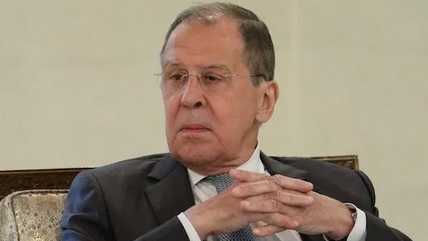
MOSCOW, November 8. /TASS/: Russian diplomacy will continue to promote a unifying agenda in international relations, work to enhance global stability and help settle conflict by political means, Russian Foreign Minister Sergey Lavrov said in an address to a conference on international security amid geopolitical instability.
The address to the conference organized by Russia’s ruling United Russia party was read out by Deputy Foreign Minister and presidential envoy for the Middle East and African countries, Mikhail Bogdanov on Tuesday.
Lavrov emphasized that Moscow is convinced that a world with real freedom of political and socio-economic models gives much more possibilities for the dynamic development and prosperity of nations. "A major factor of success is the observance of the UN Charter principles, including the most important of them - the principle of sovereign equality of state, by all participants in international life. Based on this understanding, Russian diplomacy will continue to advocate a unifying agenda in international relations, will continue to work to strengthen global stability and promote political settlement of global conflicts," his address says.
"Together with those who share our views, including our African friends, we will continue to advocate non-discriminatory use of generally recognized norms of international law. Russia stands for stronger positions in the African region in the emerging multipolar architecture and supports Africa’s initiatives in the international arena," Lavrov noted.
He stated that the situation in the world is still very tense because of "insistent attempts of the US-led Western alliance to stave off the complete loss of their global leadership in a hope to continue to resolve their problems at the expense of other members of the international community. This is the goal of the neo-colonial concept of the rule-based world order advanced by the Americans and their allies," he emphasized, adding that this selfish approach runs counter to the interests of the overwhelming majority of countries who are interested in building a more fair, polycentric world order and real democratization of international relations.




